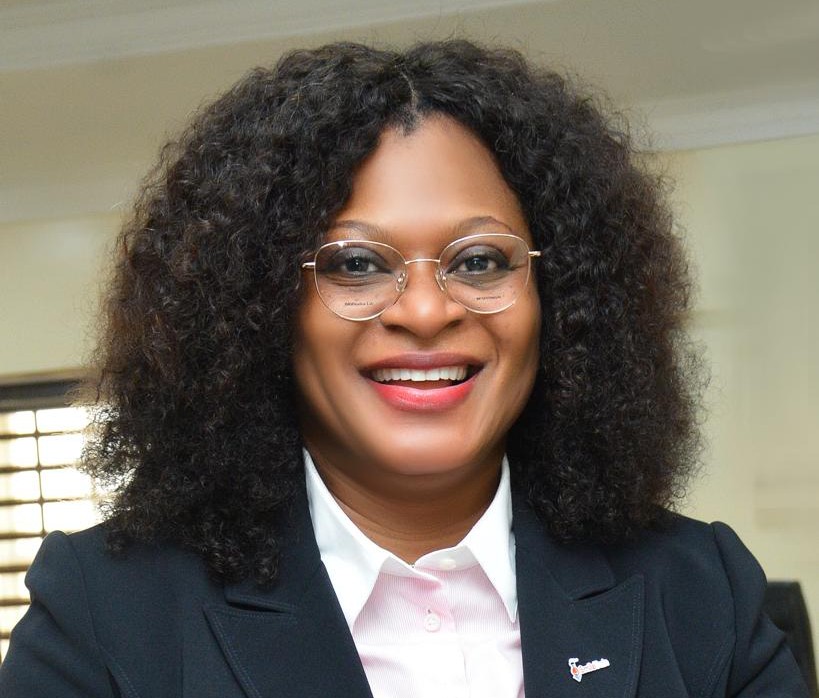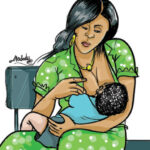In many African societies, having a child with congenital defect is often considered punishment by the gods for the parent/parent’s past sins or offenses. Certain customs and traditions are so averse to people born with physical challenges, associating it with bad luck and negative omens. Those who live are often abandoned without basic care and proper upbringing. Most of these persons could have thrived to become productive members of the society had they received early intervention to correct the condition or even given opportunities to learn and acquire a skill.
One such physical challenge that can easily be corrected but remains largely underreported and carries with it a high level of stigmatisation is cleft. Imagine being born with a gap between your upper lip that could extend into the roof of the mouth. This gap makes it difficult to breath, eat, speak and hear and if one grows up with an untreated cleft, they are subjected to unsurmountable trauma of being bullied and isolated by their neighbours. This is certainly nothing to smile about.
- Nigerian tweeps react as Davido, Wizkid share heart-warming hug at club
- Buhari urges attitudinal change for progress in education
Cleft is one of the most common birth difference worldwide. There is still no concrete evidence surrounding cleft development, but it is associated with risk factors interplay between genetic and environmental factors including, poor nutrition of the mother, folic acid deficiency and high in-take of alcohol and drugs during pregnancy. Often, the mother goes into a state of shock at first sight of the child, and without proper guidance and support, the myths and community’s scorn affect their psychological and mental well-being.
In low resource settings with limited medical technology such as ultrasound, cleft cannot be detected and corrected during pregnancy. The only solution as at today is a simple life-transforming surgery.
World Health Organization reports that on average 1 out of every 700 children are born with a cleft lip and/or palate around the world. Out of which 6,348 babies are born with cleft in Nigeria. Surgical procedures for correcting orofacial clefts in children are very useful in mitigating negative outcomes. Despite the usefulness of these reconstructive surgeries, access to these services is limited in developing countries where taboos and social stigma make it difficult for people to bring their children forward for a cure.
Scarcity of facilities and resources as well as lack of access to quality reconstructive surgery in developing countries has created a vacuum that is being filled by international organizations such as Smile Train that provide free surgical repair for patients with clefts. Over the last two decades, Smile Train, the largest cleft organisation in the world, ensures people born with clefts enjoy world-class services at community level. In this period, Smile Train has carried out over 30,000 cleft surgeries completely free of charge in Nigeria using global standards and best practices to guarantee safety.
According to Mrs Nkeiruka Obi, Smile Train’s Vice President and Regional Director Africa, at the heart of our mission is promoting a sustainable and scalable global health model for cleft treatment by empowering local medical professionals in the cleft ecosystem with training, funding, and resources to provide quality and comprehensive cleft care to children in their own communities. We are not teaching a man how to fish but we are indeed revolutionizing the fishing industry.
Smile Train, unique model of “teach a man to fish” has proved time and again that it is the best model of partnership and sustainably empowering local medical providers even in time of a global pandemic. We are not just solving a simple problem but holistically by training the local workforce, empowering them with the requisite skill sets and tools to safely provide free comprehensive cleft care to patients who are desperately in need of help. The support given to the patient extends from surgery to comprehensive care, including nutrition support, speech therapy, orthodontics, oral health psychosocial support. Access to cleft surgery ensures that a child has the opportunity for a full, productive life, rather than one filled with isolation and shame. These surgeries are performed by trained Nigerian medical personnel, edging out mission-type models of importing doctors with no guarantee of their return.
To ensure that the right equipment and environment are provided for the reconstructive surgeries of all Nigerians irrespective of class and social affiliation, Smile Train has equipped many hospital facilities, upgraded theatre and donated theatres dedicated for children as well as other essential materials. We are contributing in many ways to strengthen our healthcare delivery system across the country.
Mrs. Obi however opined that despite the great investment in funding and resources for treatment, there remains a huge backlog of patients due to lack of awareness of the treatment availability. Stigma is a mountain best conquered by the right information; she urged the community leaders and influencers to help spread awareness around cleft, improve the access to care and enhance the quality of life and productivity of patients with cleft, ultimately, building stronger communities. Smile Train in Nigeria also has a toll-free Cleft Helpline (08007645364) that allows people to call in and inquire where to receive help.
The wellbeing of a country’s population is an important indicator of how productive that population can be. What Smile Train is doing is very commendable in restoring the dignity and smile of every Nigerian who is affected by cleft. The transfer of technology and training of medical personnel is unquantifiable goodwill that brings Nigeria closer to achieving Universal Health Coverage. Partnering with Smile Train and other similar NGOs will help put an end to incidences of begging and destitution because of preventable disorders.
Written by: Michael Ahundu, Ph.D. A population and development enthusiast and Emily Manjeru, Communications Manager for Africa at Smile Train.

 Join Daily Trust WhatsApp Community For Quick Access To News and Happenings Around You.
Join Daily Trust WhatsApp Community For Quick Access To News and Happenings Around You.


